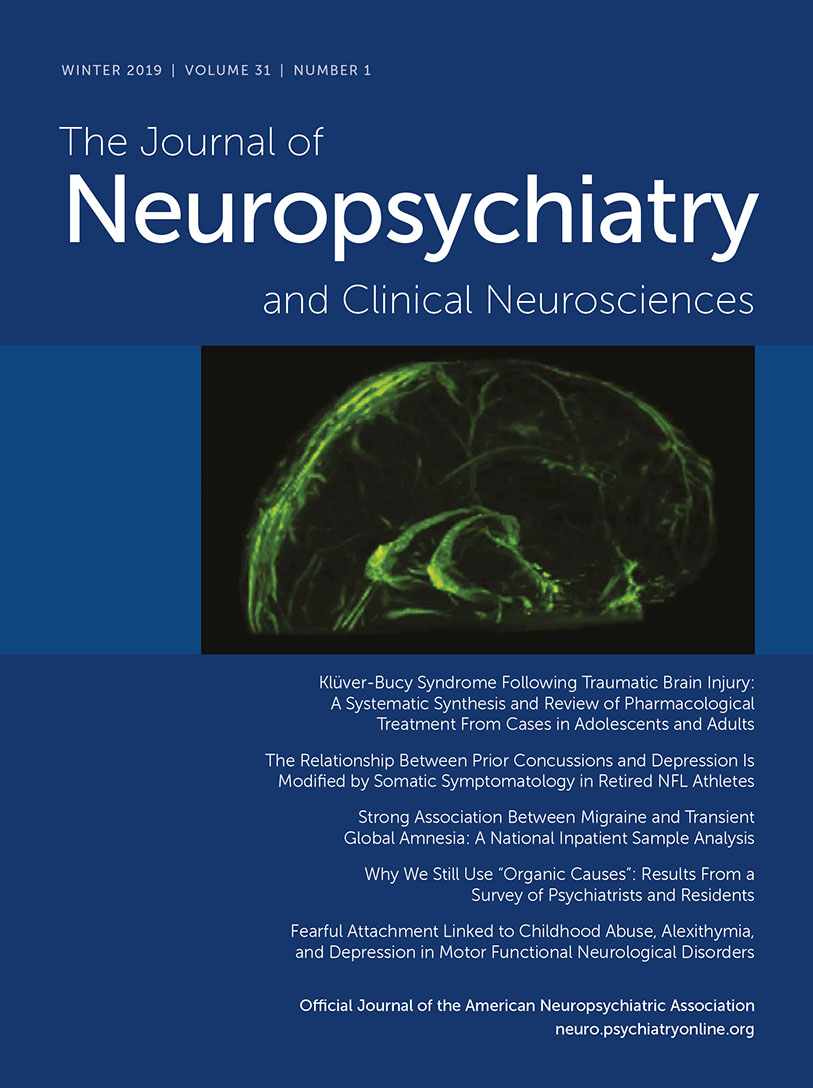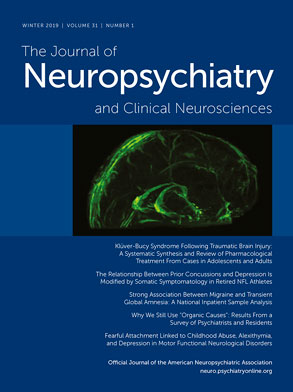A 41-year-old unemployed, single Asian woman presented to our clinic. She had a history of schizoaffective disorder, with onset at age 27. She had been treated with antipsychotics and mood stabilizers, including haloperidol, sulpiride, clotiapine, quetiapine, olanzapine, risperidone, paliperidone, and aripiprazole, since age 37 but with inadequate treatment response, thereby fulfilling the criteria for treatment-resistant or refractory psychosis.
9 She was a hepatitis B carrier with a history of diabetes mellitus under regular medication. No family history of psychosis and no previous head trauma or other organic brain disorders were reported. She had been living in a halfway house in recent years and was hospitalized in the acute psychiatric ward approximately once every 2 years for exacerbated psychosis with disturbing behavior. She refused treatment with ECT.
Despite compliance with the treatment regimen, the patient’s symptoms worsened. Consequently, her treatment team decided to start her on clozapine (50 mg/day) during outpatient assessment, which was 6 days before her hospital admission. Laboratory assessment indicated normal WBC and neutrophil counts (6.23×10
3/uL and 3.95×10
3/uL, respectively). On admission, which was day 6 of clozapine use, her dosage was titrated to 100 mg/day, with close monitoring, and the patient’s WBC and neutrophil counts were 3.14×10
3/uL and 1.66×10
3/uL, respectively. On day 7, a drop was detected in both WBC (2.78×10
3/uL) and neutrophil (1.48×10
3/uL) counts, without any subjective discomfort or signs of infection. Her score on the Naranjo Adverse Drug Reaction Probability Scale was 7, corresponding to a probable adverse clozapine-associated effect of neutropenia.
10 The patient maintained clozapine use at lower doses (75 mg/day), after the potential benefits and risks were weighed. Her WBC and neutrophil counts were closely monitored twice a week during the first 2 weeks, and the counts remained within the normal range (4.28×10
3/uL and 6.72×10
3/uL, respectively, on day 8). The treatment team tapered clozapine to 50 mg/day and combined it with trifluoperazine (5 mg/day) during the third week because the patient began to experience a sore throat and cough.
She was asymptomatic after 4 weeks of treatment and was discharged from the hospital with improved psychotic symptoms. She received regular outpatient follow-up for several months. She remained in remission without any adverse effects under the same regimen, with regular monitoring of her WBC count (>4×103/uL) and without another episode of neutropenia or agranulocytosis.

